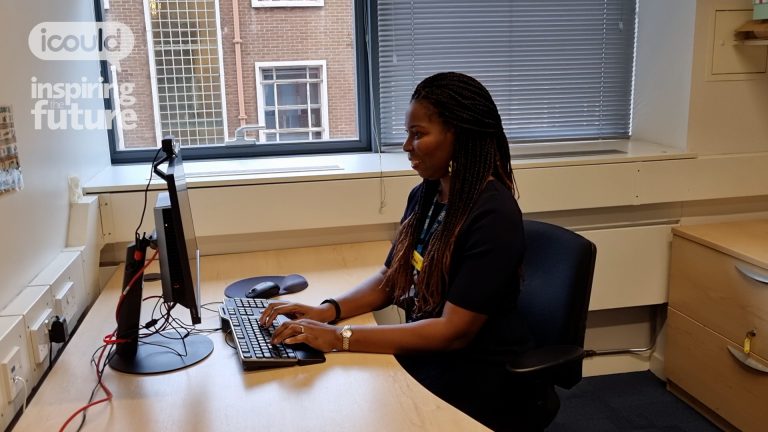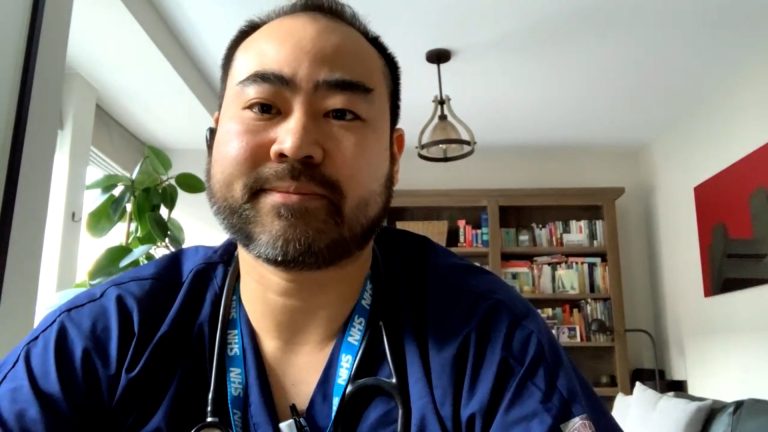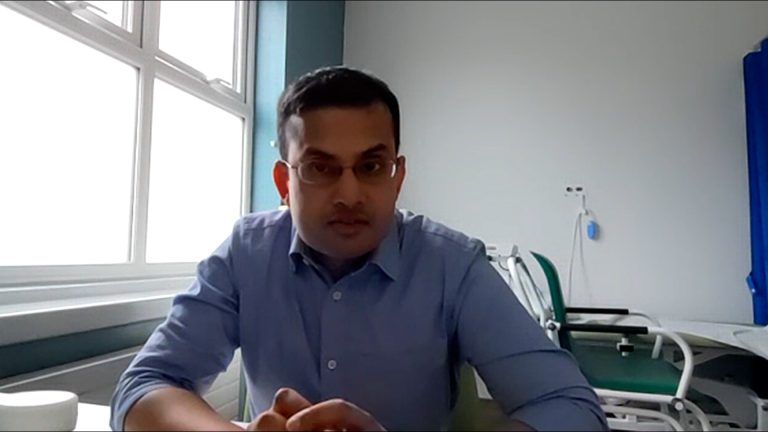Careers in nursing: nurses share their career stories, tips and advice
Careers in nursing: nurses share their career stories, tips and advice
Everyone has a general idea what a nurse is but it’s actually a job title which covers lots of different things. We spoke to four people who went into nursing – what do they do now and how did they get there?
Meet our nurses
Name: Melissa Canavan
Job: Respiratory nurse specialist and locality lead nurse. I work between 12 GP practices in Leeds, training GPs and nurses to help treat people with breathing problems.
I also do joint clinics with nurses and have worked with local schools.
More recently I have started going into the community to link with the council, community centres, and other organisations.
Best things: I love reviewing patients and making them feel better. I love networking with other nurses and working with them to improve care.
Worst thing: The worst part is trying to organise my time between all the surgeries.
Career path: I left school with rubbish GCSEs – I didn’t know what I wanted to do. The careers office told me about a new course so started off as a nurse cadet, achieving my NVQs in care. I went on to university after, and qualified as a nurse with an advanced diploma in nursing. I went back and topped up to a degree. I’ve now set up my own social enterprise which trains nurses, support GPs and provides health services to businesses.
Top tips: Never give up on your dreams! It will take hard work and determination but you can get there in the end if you persevere.
________________________________________________________________________________
Name: Liz Carlisle
Job: Clinical manager for specialist dementia and frailty service. I manage a team which brings together doctors, nurses and other mental health professionals. Dementia usually affects older people and is when the brain slows down or no longer works properly. We support people with memory loss or other symptoms – such as getting around – which make it difficult to carry out daily tasks.
I help make decisions with the team about how best to support patients. I am also responsible for the overall running of the department. This involves things such as dealing with other organisations, responding to complaints, managing staff, and ensuring their safety and training.
Best things: I enjoy the potential to make the lives of our patients and their families better, and supporting staff to further their careers. I also like taking an idea and making it happen.
Worst thing: I don’t enjoy having to make tough decisions that aren’t popular with the team.
Career path: I left school at 16 with four GCSEs. Although I longed to become a nurse, the time wasn’t right. I went into hairdressing and ended up with my own business but after ten years decided to retrain.
I spent the next four years getting experience in the care industry – I worked as a live-in carer, care agency worker, and a care assistant in residential homes, nursing homes, and hospices.
When I was 30, I started training as a general nurse but soon realised this was not for me (I don’t like body fluids or needles!) so I swapped to mental health nursing.
On qualifying, I was offered a job with an older adults community mental health team in Hull, where I had spent several student placements. This involved supporting people with mental health issues in their own homes.
I then moved down to Essex and took up a community psychiatric nurse post, again working outside hospital to support older adults with mental health problems. I went on to become a team manager and am now a clinical manager.
Top tips: Use all the support around you, continue to learn and develop your skills and knowledge and be open to change. It’s also very important to retain your sense of humour. I think the life experience I gained before starting my training has made me a better nurse so don’t give up on your dream or think you have left it too late.
________________________________________________________________________________
Name: Tracy Maddison
Job: Orthopaedic matron. I help treat people with bone and muscle problems. I work with outpatients across three sites in Teesside. This means treating patients who come in for an appointment – or series of appointments – but who don’t stay overnight.
There are two main parts to my role as a matron. Firstly, I’m responsible for nursing staff. This involves planning which staff are working at which clinic and when, and dealing with a range of staff issues, including training and recruitment.
Secondly, I run nurse-led clinics, treating patients who have had broken bones or wounds. I’m also responsible for ensuring patient safety and seeing that patients have a good overall experience when they visit.
Best things: I am still very involved in patient care and can see patients from start to finish of their care. I enjoy the age range we deal with and the variety of patients we get. I also enjoy bringing about change which improves our service for both staff and patients.
Worst thing: The amount of work to meet targets and deadlines. I have no control over how they are set and they are sometimes very high.
Career path: I worked as a care assistant in a nursing home to gain some basic skills until I started my nurse training. I went on to get a degree in practice innovation.
After qualifying, I worked in a nursing home for nine years, working my way up to deputy matron. I then joined the NHS as a staff nurse, going on to become a senior staff nurse, nurse practitioner and now matron.
Top tips: Never stop learning. Never stop asking questions – there is no such thing as a silly question. Set a reachable goal and once you achieve it set another.
________________________________________________________________________________
Name: Nicola Payne
Job: Nurse specialist. I provide training and support to care home staff and promote new and improved ways of working.
Best thing: I love my job! I set out each day to make a difference. I enjoy meeting lots of new people and no two days are ever the same.
Worst thing: I can honestly say there is nothing I do not enjoy.
Career path: I wanted to be a nurse all through secondary school but ended up leaving at 16 and working in finance until the credit crunch in 2007, when I was made redundant. I was eight months’ pregnant and decided it was time for a change!
When my son was three months’ old, I started working for a home care company to gain experience. I then worked nights in a care home and started my NVQ 3 in health and social care, before applying to train as a nurse at university.
My first job was in the community as a staff nurse, where I worked on a project providing support and training to a care home. After three years, I became a senior staff nurse and returned to university to start an MSc in advanced nursing. While studying, I began work as a nurse specialist two days a week. After six months, the role expanded and I worked on another project. I have recently completed my MSc and continue to work on a number of projects across the county.
Top tips: Keep going. Embrace change. Surround yourself with positive people and believe in yourself!
Find out more
If you’d like more information on what it takes to become a nurse, how you could start your own nursing career and how your career in nursing could progress in the UK, find out more with NHS Health Careers.





